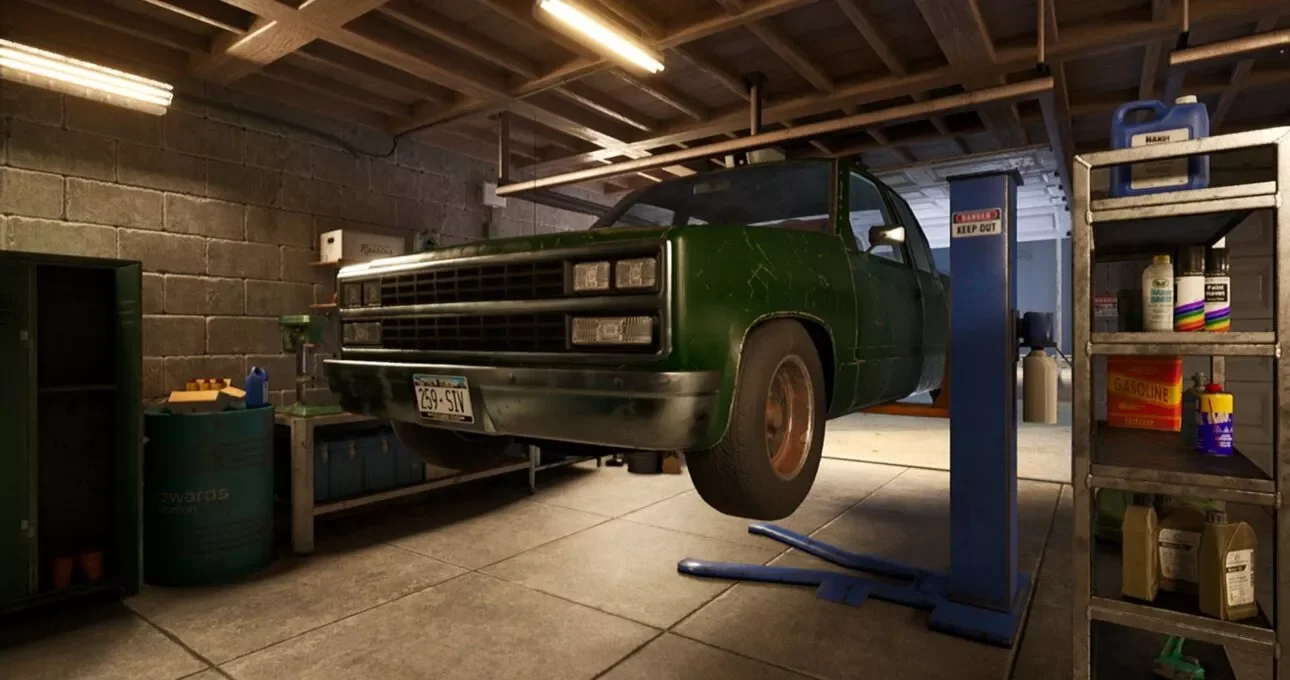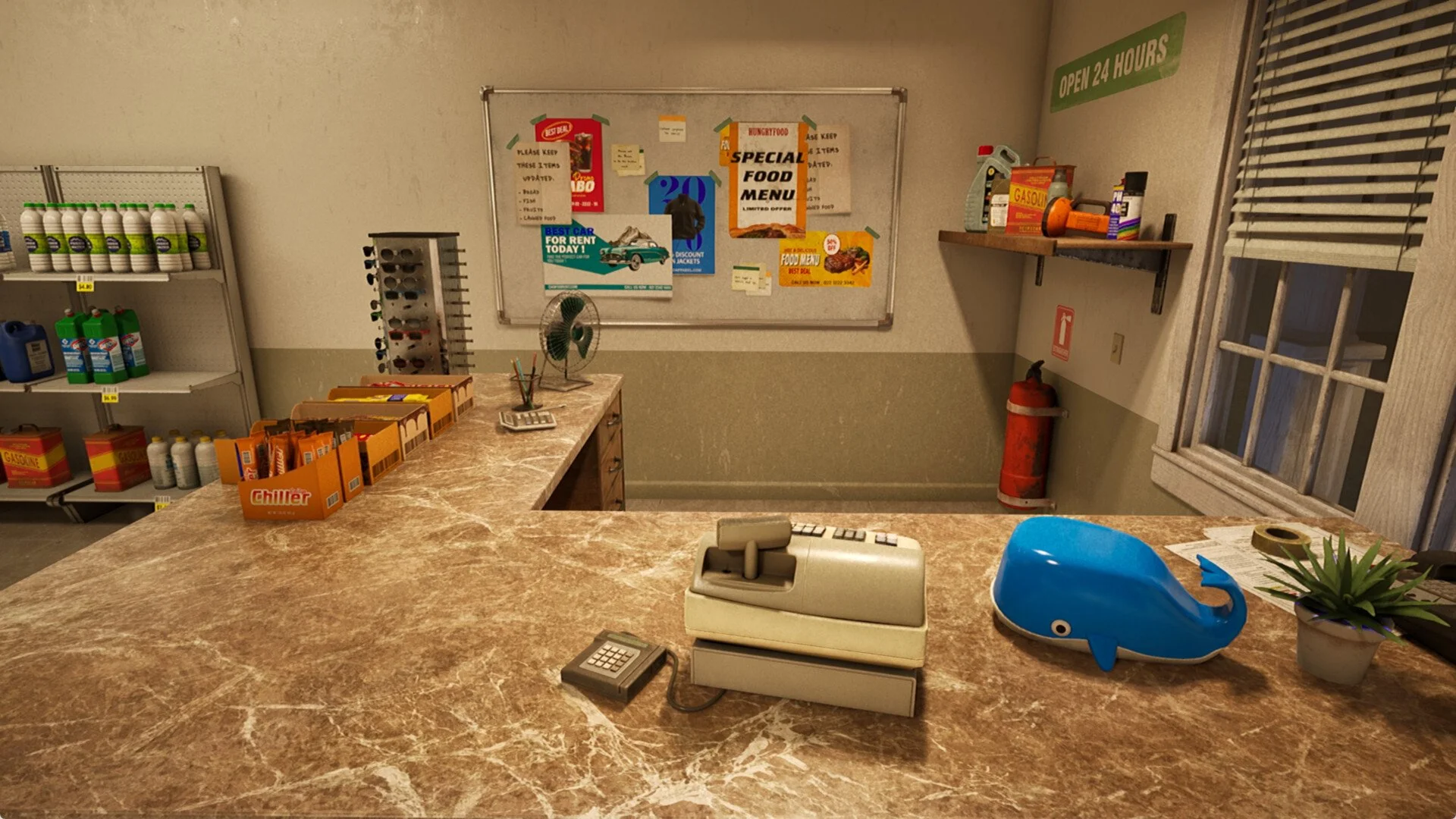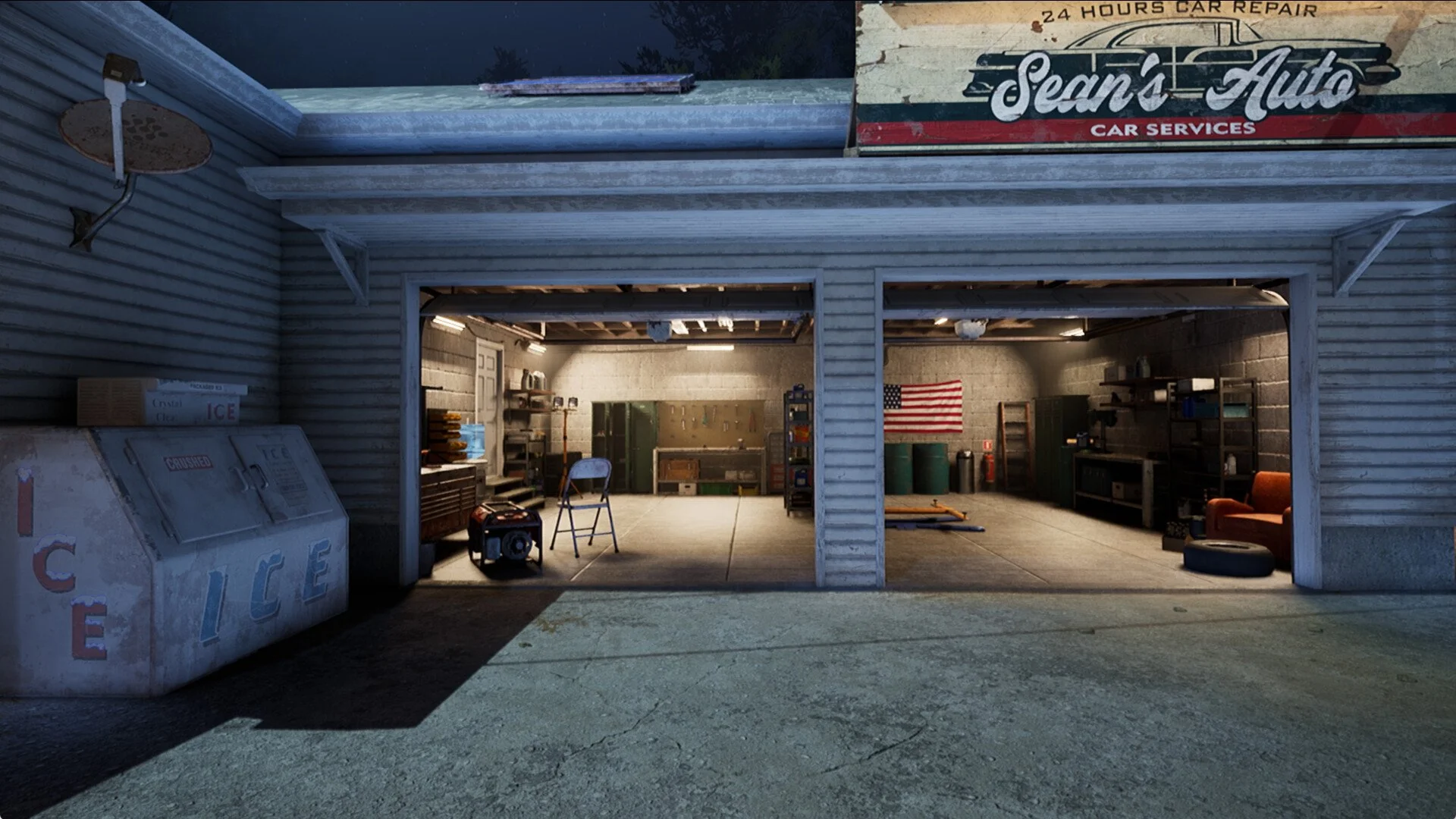Before Exit: Gas Station
I’ve just finished my first night shift in Before Exit: Gas Station, developed by Take IT Studio! and released in October 2025 on PC. It’s a game that takes something as ordinary as closing down a roadside gas station and turns it into a quiet, uneasy experience. You aren’t escaping monsters or outrunning disasters. You’re sweeping floors, locking doors, and trying not to notice how empty the world feels when the lights begin to hum and the customers disappear.
The concept sounds simple, but it’s remarkably effective. Over the course of my first two hours, I cleaned up spills, served the last customers, and double-checked every inch of the building before heading home. Somewhere between the mop bucket and the register, I realized I wasn’t just managing a checklist. I was managing my nerves.
Disclosure: I received a free review copy of this product from https://www.keymailer.co
First Impressions: A Shift That Feels Too Real
The game opens with a short briefing and a checklist that quickly becomes your lifeline. Everything from cleaning spills to locking storeroom doors must be completed before you can leave for the night. The interface is simple, your objectives clear, and the station itself feels believable—cluttered, functional, a little rundown.
At first, it plays like a routine job sim. You pick up litter, refill stock, and handle the last customers before the doors close. But as the minutes tick by, Before Exit: Gas Station starts layering in tension through its environment rather than direct threats. The hum of the ceiling lights feels louder, the air vents start rattling, and you begin noticing things that don’t line up. A sign is turned the wrong way. A drawer you closed is open again. A voice crackles faintly on the radio, though no one’s broadcasting.
It’s the kind of unease that makes you double-check every corner, not because the game demands it, but because it’s gotten under your skin.
Exploration and Routine
The layout of the station is tight and easy to learn: a main store floor, a small workshop area, a restroom, and the outdoor fueling area. The first hour is spent getting to know this space. You’ll clean, replace items, and follow prompts that simulate the closing shift of a 24-hour business on the brink of midnight.
The strength here is pacing. Before Exit never rushes you. It wants you to linger in the silence, to hear the air conditioning cycle off, and to realise how empty the world sounds when you’re the last one around. It’s subtle environmental storytelling, where small details—like a crumpled receipt that mentions an overdue delivery—give you tiny glimpses of something bigger beneath the mundane.
Tasks are straightforward but layered. Cleaning up a mess might reveal a note tucked underneath a counter. Fixing a light exposes a dark corner you hadn’t noticed before. Every small job feels connected to the larger mood of isolation.
The Outside Segment
About halfway through my session, I got the instruction to inspect the fuel dispensers and check the external valves. Leaving the safety of the station’s bright interior for the quiet, wind-swept parking lot changed everything.
The sound drops away out here. Your flashlight becomes your only comfort. There’s fog in the distance, a faint hum from the highway, and occasionally a car passes, its lights cutting across the forecourt before disappearing into the night. It’s calm and tense all at once.
When I reached the far pumps, the checklist updated—something about inspecting oil stains near the outer fence. As I approached, I caught sight of movement on the edge of the light. Not a jump scare, not a monster—just a reminder that darkness has a presence. It might be your mind, or it might not. The game never tells you. It’s one of the most effective uses of suggestion I’ve seen in a small indie project all year.
Puzzle-Solving and Anomalies
Before Exit uses puzzles sparingly but intelligently. They’re logical and rooted in your tasks—restoring power to a flickering sign, realigning a breaker in the workshop, or finding the right combination for a misplaced tool cabinet key. None of it feels forced. These challenges break up the routine without breaking immersion.
Where the game truly shines is in how it handles “anomalies.” At first, they’re small: an object moved, a reflection that doesn’t match the room. Later, they escalate into more psychological moments. I won’t spoil specifics, but there are sequences where you’ll question whether something has genuinely changed or if exhaustion is playing tricks on you. That ambiguity makes every shift different.
Visuals and Sound
The visuals are grounded and believable. This isn’t a high-budget production, but every texture and prop feels hand-placed to create realism. The dull gleam of the tile floor under fluorescent lights, the dusty corners of the workshop, and the oil-slick reflections outside all build a sense of place.
The lighting deserves praise. It’s harsh, flat, and utilitarian inside, yet almost painterly outside when the fog rolls across the lamps. It’s the kind of understated direction that tells you exactly how this world feels—too clean in some spots, too dark in others.
Sound design is where Before Exit really earns its atmosphere. The buzz of power lines, the metallic clank of tools, even your own footsteps on concrete all blend to make silence feel heavy. Sometimes you’ll hear faint noises that don’t belong: a cough, a door hinge, a distant engine that never arrives. Those moments stay with you long after you clock out.
Performance and Feel
Running on PC, the game’s performance is solid. No crashes or major bugs in my time with it. Controls are simple. The movement, interaction, inventory do what they need to. The UI stays out of the way, letting the world take center stage.
It’s a slow game by design, but that’s its strength. The pacing encourages you to think, to observe, and to absorb. You don’t play Before Exit: Gas Station to “beat” it. You play it to experience the quiet unraveling of routine under pressure.
What Worked Best for Me
The tension built through environment and sound, not scares.
The gradual shift from routine realism to subtle unease.
The use of small puzzles and maintenance tasks that make sense.
The way every noise and flicker keeps you second-guessing what’s normal.
Final Thoughts
After two hours in Before Exit: Gas Station, I felt like I’d lived through a real shift; and thankfully not a monotonous one. It’s intimate, eerie, and deeply atmospheric. What begins as a mundane simulation slowly becomes something psychological. You’re alone, performing tasks that should be simple, yet every time you turn around, the world feels slightly altered.
It’s not about fear; it’s about awareness. The game trains you to notice everything, to question every hum, shadow, and misplaced object. By the time you clock out, you’ll realise the job isn’t the scary part. It’s the silence that follows when you leave the lights behind.
If you enjoy slow-burn experiences that value atmosphere over spectacle, Before Exit: Gas Station is absolutely worth pulling a shift in.
I created this website as I feel the state of the games industry and games reporting as a whole has gotten overly negative and full of clickbait. While I understand both of these are a great way to generate engagement, it’s a detriment to those gamers (like myself) that are just trying to enjoy games and not have to worry about the negativity of the current state of the gaming industry. I want a space where gamers can come for unbiased news that doesn’t rely on clickbait or rumours with a dash of humour and have the opportunity to share their passion for games.
#keymailer #beforeexitgasstation



